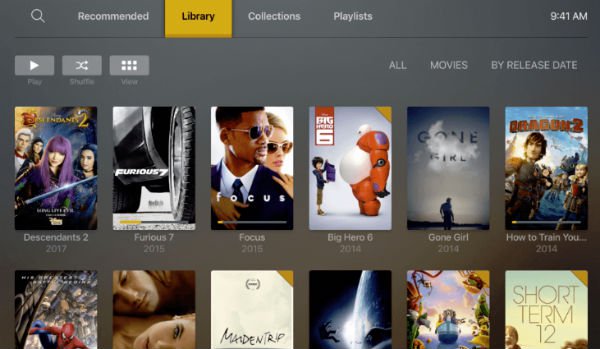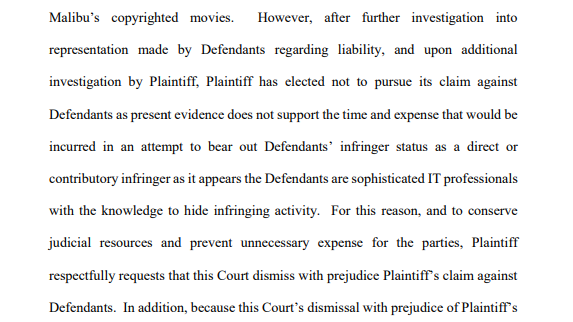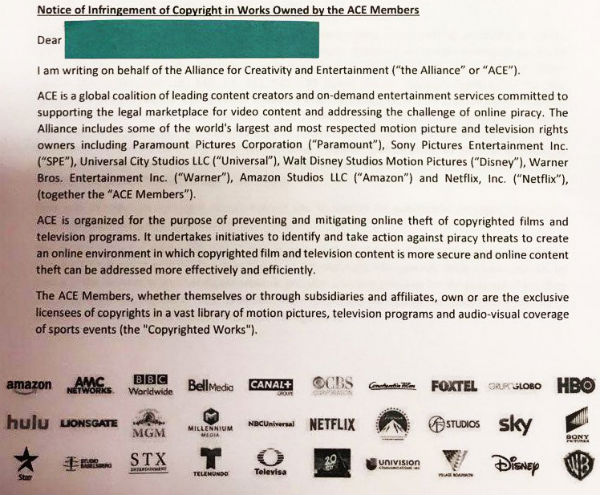
The practice of copyright-trolling is now well-established in many countries around the world.
The companies involved often gather IP addresses from BitTorrent swarms, then via the courts, obtain identities of users from their ISPs.
What follows are threats to the account holder, warning that if he or she doesn’t pay a ‘fine’, then court action will follow. This, of course, is boosted with claims that if the process gets this far, things will get much more expensive.
In reality, however, copyright trolls rarely take cases to court and when they do, they tend to head for the hills when people put up a spirited fight. That was demonstrated again earlier this week when a troll targeted an IT specialist, then backed away after claiming his technical knowledge would allow him to cover up any infringement.
Considering the main evidence in most trolling cases is a simple IP address, captured way before the rightsholders even write to a defendant, it raises the question of whether even the trolls have faith that an IP address alone is enough to prosecute a case. Some courts certainly don’t.
Yet that evidence alone appears to form the basis of claims detailed in a letter received by a pensioner in Sweden during March 2019.
The 75-year-old man was told that his IP address (allocated by his ISP TeliaSonera) had been used to share the hardcore porn movie “The Creepers Family Part 7”, which was produced by Girlfriends Films and licensed to MIRCOM International, a company with a long history of involvement in similar cases.
The company doing the tracking was Media Protector International GmbH, which has been providing data for similar cases for more than a decade.
While there can be no doubt that many IP addresses caught in the dragnets of these companies were indeed used to download and share copyrighted content, innocents are regularly caught in the crossfire. The pensioner from Sweden says that’s the case with him.
He shared his story with Bahnhof, a Swedish ISP which acts as a competitor to TeliaSonera and one that offers a sympathetic ear to people targeted by copyright trolls.
“The infringement occurred on Friday February 2, 2018 at 6:43:17, that is, a time that I as a pensioner sleeps,” he told the ISP.
“I am 75 years old and I do not know much about technology, and I wonder if there is anything I can do or if I should just pay?”
This, of course, is exactly the strategy of copyright trolls. Whether their targets are guilty or innocent, they hope their strongly-worded letters will break the resolve of recipients and make them cave in, parting with cash to make the nightmare go away.
“I sleep poorly and feel great concern because of this, I just want it to stop. My wife wants to pay to get rid of the problem, but if we do will it just make things worse?” he added.
“I am afraid that the bills will continue to come from other agencies and companies, it seems to be a business idea that is better than selling movies. This can be my ruin.”
While the mainstream media has largely given up about worrying about those targeted by copyright trolls, history has shown us that cases against pensioners are rarely well received by the public or those in power.
Two years ago, for example, an 83-year-old grandmother from the UK went to the press after being accused of pirating the Robert Redford film The Company You Keep. That attracted the attention of her local member of parliament, who branded the practice “disgusting” and raised the matter with the government.
It is not known whether the woman ever paid up but given the negative publicity and outcry, it seems unlikely. The case certainly never went to court, which is common when those accused by copyright trolls fight back and/or tell their stories in the media and complain to politicians.
For Bahnhof CEO Jon Karlung, not enough is being done to protect those wrongly targeted, with citizens currently left to fight for themselves.
“It’s a corrupt system promoting copyright trolls and legal firms that thrive on blackmail. Unfortunately, there is not enough political momentum to change the situation. It’s an ongoing scandal, and I believe that this affects the justice system as a whole,” Karlung told TorrentFreak.
“The only solution is to make this problem as visible as possible. People should also start asking their telecom operators why they save data for time spans of 24 months – Bahnhof only saves for 24 hours.”
Source: TF, for the latest info on copyright, file-sharing, torrent sites and more. We also have VPN reviews, discounts, offers and coupons.





 Plex is a multifunctional media server that allows users to easily organize all their entertainment in one place.
Plex is a multifunctional media server that allows users to easily organize all their entertainment in one place. 

 In recent years, file-sharers around the world have been pressured to pay significant settlement fees or face legal repercussions.
In recent years, file-sharers around the world have been pressured to pay significant settlement fees or face legal repercussions.

 During the summer of 2017, several of the largest entertainment industry companies in the world teamed up to create a new anti-piracy coalition.
During the summer of 2017, several of the largest entertainment industry companies in the world teamed up to create a new anti-piracy coalition.
